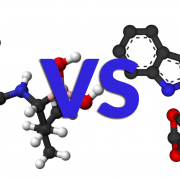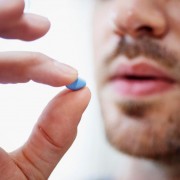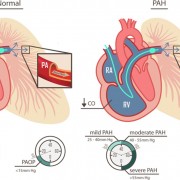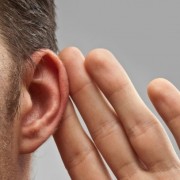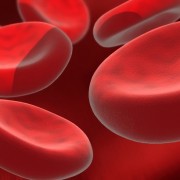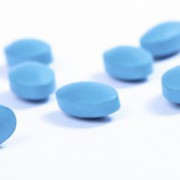Does Viagra Work For Everyone?
There is hardly any other ED pill that has quite as much (well earned!) publicity as Viagra. It is rather reassuring to know that should impotence strike – at a ridiculously advanced old age, of course! – there is a remedy to break your fall. But is Viagra all that good as it’s cracked up to be? It most certainly is, otherwise the hype would have been dismissed decades ago. However, Viagra is not a one-size-fits-all solution. Or rather, it can work miracles for some – and cause nothing but trouble in others. So how do you know if the diamond-shaped pill is your Holy Grail product or not, without putting your health on the line? Read this simple Canadian Pharmacy guide with some valuable heads-up.
Therapeutic Purposes Of Viagra

Viagra has multiple off-label uses which we will not cover in this article. Just to give you a feel for what a multitasker it is, let us mention that it can be used in the treatment of PAH (pulmonary arterial hypertension), diabetes, mountain sickness, as doping in sports, in cardiac patients and even as a solution for extending flower vase life. However, we will proceed from assumption that the majority of patients are interested in Viagra because of its outstanding efficacy in restoring erectile power.
While there are multiple things to consider when answering the question about Viagra advisability in every particular case, the bedrock of it is the purpose of its use. Viagra (sildenafil citrate) is intended for symptomatic relief of ED (erectile dysfunction) symptoms, which we are certain that you already know. What some eager patients forget to take into consideration, however, is that in the absence of ED diagnosis the use of sildenafil is strongly not recommended.
Another objective that Viagra is not designed to help achieve is a libido boost. While Viagra can provide distinctive increase in stamina, it does not have any effects of an aphrodisiac that are commonly attributed to it. So if you expect stepping up your sexual appetites with the help of Viagra, it will not work for you this way.
Viagra is sometimes applied in men with PE (premature ejaculation), which is linked to, inter alia, ED. Since sildenafil is known to slightly decrease sensitivity of the nerve endings found in the penis, it produces a prolonging effect on IVLT (intravaginal latency time).
The bottom line is, by carefully assessing your needs, you will be able to receive pharmaceutical aid – given that your prescriber sees your condition as requiring medical attention. And as long as your needs can be met by the use of Viagra, you should proceed estimating other health circumstances to find out if it will work for you.
Who Can Take Viagra
Viagra can be taken by men above 18 years of age, with no maximal age limit. The drug is intended for the use in individuals with a clinically and symptomatically confirmed ED. The effects of sildenafil in female and pediatric population have not received extensive coverage in medical reports, and are considered potentially unsafe.
Note that we will not address the instances where Viagra is contraindicated rather than inefficient. Such aspects of your clinical history should be ruled out by the prescriber at the initial stages of therapy appointment. They are also pinpointed in the manufacturer’s guide to Viagra tablets. Taking Viagra can bring on not only underwhelment associated with inefficacy, but serious damage to patient’s health.
Clinical Cases Treatable With Viagra
The next thing to establish is whether or not the nature of your ED is amenable to Viagra effects. The good news is that sildenafil is effective for impotence of various backgrounds, be it physiological or psychological – or rather, in the majority of causes underlying the condition. For instance, radical surgery performed on the genitals or a sustained injury can severely compromise your chances to restore erectile function by orally administered means. The same goes for some aggressive forms of cancer, especially urogenital types of it.
Sildenafil contained in every Viagra pill as the main medicinal agent is a potent dilator of blood vessels. The principles of Viagra mechanism are therefore locked into interacting with patient’s cardiovascular system. And if there is something wrong with the blood vessels themselves, sildenafil is powerless. The list of blood vessel diseases that cause impotence is headed by diabetes, since it is one of the most common causes for ED in men across a variety of age groups, but it is a marginal case: Viagra is still effective in patients ailed by diabetes type 1 (50% efficacy reported) and type 2 (60% efficacy). When ED onset is brought on by bad lifestyle habits like lack of exercise, smoking or substance abuse, as long as the condition of blood vessels is not compromised beyond repair, impotence can be reversed by the use of Viagra according to prescriber’s guidelines. Past this point, oral agents like sildenafil do not produce any meaningful effect.
The list of blood vessel diseases is built up by the following culprits:
- Churg-Strauss syndrome. An inflammation that primarily occurs in the airways and is associated with asthma. The inflammation is found in small to medium-sized vessels
- Cutaneous leukocytoclastic angiitis. A condition that occurs only in the skin, which are spread throughout the body or in the kidneys
- Essential cryoglobulinemisk vasculiti. An inflammation that affects the smallest blood vessels: capillaries, venules or arterioles. It attacks mainly the skin and kidneys
- Henoch-Schönlein purpura. Inflammation affecting capillaries, venules or arterioles. The disease normally attacks the skin, bowel and kidneys, but also joint pain or arthritis. The condition occurs in children
- Microscopic polyangiitis. Inflammation and breakdown of capillaries, venules, or arterioles, but also small and medium-sized arteries may be attacked. Serious kidney inflammation (necrotizing glomerulonephritis) is very common
- Granulomatosis with polyangiitis. Airway inflammation and damage in the capillaries, venules, arterioles and arteries. Serious kidney inflammation is common
- Kawasaki disease. Inflammation of the artery wall, particularly in the coronary arteries, but also the aorta (aortic) and veins may be affected. Occurs in small children
- Polyarteritis nodosa. A severe inflammation in the wall of medium to small arteries without kidney damage or vasculitis in arterioles, capillaries and venules
- Giant cells arteritis. Inflammation of the aorta and its main branches. Particularly common is the temporal artery is diseased (temporalisartrit), a condition that is associated with polymyalgia reumatika
- Takayasu arteritis. Inflammation of the aorta and its main branches
Individual Response And Tolerance To Viagra
This said, we are all created different. For reasons that are very hard, if not impossible, for the modern medicine and pharmacology to pinpoint, you may find that sildenafil effects are less than impressive. This may be accounted for by a number of factors, the most important of which are your individual response towards sildenafil therapy and the way your body tolerates it. For instance, if you have a decreased or, quite contrarily, elevated sensitivity towards sildenafil, getting medicated with Viagra will not entail optimal health results.
If you are certain that you have done well with following the instructions, including giving the blue pill several trials on different occasions, then it might be a good time to consider another PDE5 inhibitor – or even an alternative treatment.
They say, diversity is the spice of life; this adage rings especially true for the multitude of oral ED agents available through My Canadian Pharmacy Rx. All your dose adjustment needs can be met with the range of brand and generic sildenafil forms, as well as other meds from the PDE5 inhibitor family. Ask your healthcare practitioner for guidance and choose an ED therapy solution that is uniquely you.

